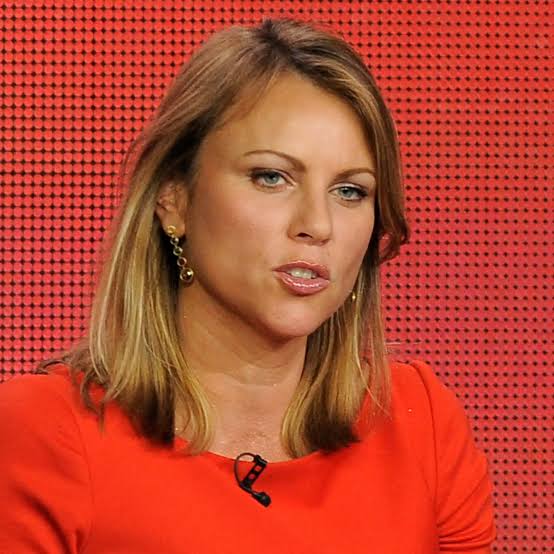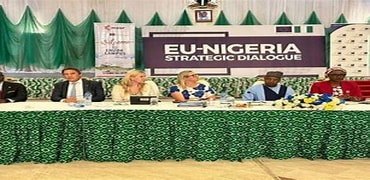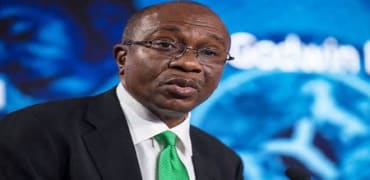React : Deconstructing and Educating Lara Logan: Nigeria’s Story Deserves Truth, Not Western Propaganda
React :
Deconstructing and Educating Lara Logan: Nigeria’s Story Deserves Truth, Not Western Propaganda
-Sunday Dare
Lara Logan’s recent tirade about Nigeria, delivered at the U.S. National Press Club, is a sobering example of how African crises are still framed in Western discourse — stripped of complexity, nuance, and local agency.
Her narrative reflects a troubling pattern of Western misrepresentation of African realities. While insecurity in parts of Nigeria is real and tragic, Logan’s narrative collapses complex, multidimensional issues into a crude religious war frame. Worse, she dismisses the efforts of local journalists, institutions, and communities working tirelessly to report the truth and restore peace.
This kind of rhetoric is not only reckless — it distorts Nigeria’s struggle, dishonors the victims of violence by politicizing their pain, and undermines legitimate reform and security efforts on the ground. A proper understanding of the situation demands balance, context, and truth — not fear-mongering. Below we dispel some of Lara Logan's wild conjectures and speculations:
1. “There was no truth in Nigeria. There were no media organisations.”
Nigeria has one of the most vibrant, plural, and adversarial media landscapes in Africa — with over 100 national and regional newspapers, dozens of investigative platforms, and independent broadcast outlets operating daily.
Local journalists — from Daily Trust, TheCable, Premium Times, HumAngle, Channels TV, ICIR, and BBC Africa Eye (Nigeria Bureau) — have for over a decade exposed killings, displacement, and humanitarian crises in Benue, Plateau, Kaduna, Zamfara, and Borno.
To claim “there was no truth in Nigeria” is an insult to hundreds of Nigerian reporters who risk their lives covering these crises without foreign protection or funding. Many have been kidnapped, attacked, or killed doing this work — not because they were “lazy” or “cowardly,” but because they operate in dangerous, underfunded conditions.
2. “Journalists just bought the government line and refused to go to the frontlines.”
Dozens of Nigerian journalists have gone to the frontlines, often without basic safety kits.
Reports by Daily Trust, HumAngle, and BBC Pidgin from Southern Kaduna, Benue, and Taraba have documented the devastation with nuance and local voices.
What Western commentators like Lara Logan often ignore is that access to conflict areas is limited not by cowardice, but by security restrictions, lack of insurance, and the real threat of death.
Nigerian journalism remains one of the most critical of government in Africa.
3. “The Fulani are not really terrorists” vs. “It’s all a scam about climate change.”
The conflicts in Nigeria’s Middle Belt and Northwest are multifactorial. They involve a mix of criminal banditry, resource competition, ethnic mistrust, and governance failures — all compounded by climate stress, population pressure, and weak policing.
To seek to frame the entire Fulani ethnic group — a 20-million-plus demographic — as collectively responsible for terrorism is both false and inflammatory.
The International Crisis Group, UNDP, and Nigerian security briefings all emphasize the criminal, not purely ideological, nature of many attacks.
Climate stress is a contributing factor, not a “scam.” It explains why pasture and water scarcity intensify migration and clashes — a scientifically documented reality, not propaganda.
4. “Western media and Nigerian journalists deny the killings.”
Every major Nigerian newspaper and TV station has repeatedly reported on massacres in Benue, Plateau, and Kaduna.
The difference is that responsible journalists verify claims before publication, rather than amplifying unverified videos from unverifiable sources.
Reports of atrocities must be documented, not sensationalized.
The National Human Rights Commission (NHRC), Amnesty International, and Human Rights Watch have investigated and confirmed numerous killings — evidence that the Nigerian media does not deny these events.
What they avoid — rightly — are sweeping religious or ethnic generalizations that could inflame further violence.
5. “Climate change is a scam.”
Climate change is not an invention of elites; it’s a lived reality in Northern Nigeria.
According to the Nigerian Meteorological Agency (NiMET) and World Bank data, rainfall patterns have shifted dramatically, the Sahara is moving southward, and grazing land has shrunk by up to 26% in two decades.
These environmental pressures don’t “excuse” violence — but they explain some of the triggers.
To dismiss them as “fake” is to ignore the real suffering of farmers and herders whose livelihoods have been destroyed.
6. “Western journalists care more about Nigerian truth than Nigerians do.”
This framing reflects a colonial-era mindset — the idea that only foreign voices can speak “truth” for Africa.
The truth is this: Nigerians have been documenting and confronting their pain long before foreign journalists parachuted in.
It is local reporters, civil society groups, faith leaders, and community journalists who have kept attention on these issues when international media lost interest.
Real allies don’t erase local truth-tellers; they amplify them.
7. “Journalists are too lazy, too corrupt, too stupid, too cowardly.”
Such language is beneath serious journalism.
Nigerian journalists operate in one of the most dangerous and underpaid media environments in the world.
They endure intimidation, censorship, and violence — yet continue to report with professionalism and courage.
Instead of denigrating them, Lara Logan should have engaged Nigerian editors, media unions, and press associations — who daily defend press freedom without global platforms or security details.
8. The Real Issue: Complex Conflict, Weak Institutions, and a Struggling Justice System.
Nigeria’s insecurity crisis is real — but it’s rooted in state weakness, economic deprivation, and institutional decay, not religious identity.
The collapse of local policing, poor intelligence coordination, and impunity for rural violence are structural failures — not media conspiracies.
Serious reform, not scapegoating, is what the victims need.
9. Finally,— Truth Deserves Respect, Not Exploitation.
No one should ever deny the suffering of victims of rural violence. But truth is not served by distortion.
Lara Logan’s speech weaponizes tragedy to fit a Western ideological narrative — one that erases local voices and feeds division.
The real truth is that Nigeria’s journalists, NGOs, and communities have kept the flame of truth alive — quietly, consistently, and courageously.
If the global press wants to help, it should partner, not patronize. Nigeria doesn’t need foreign pity; it needs global support and fairness.

















